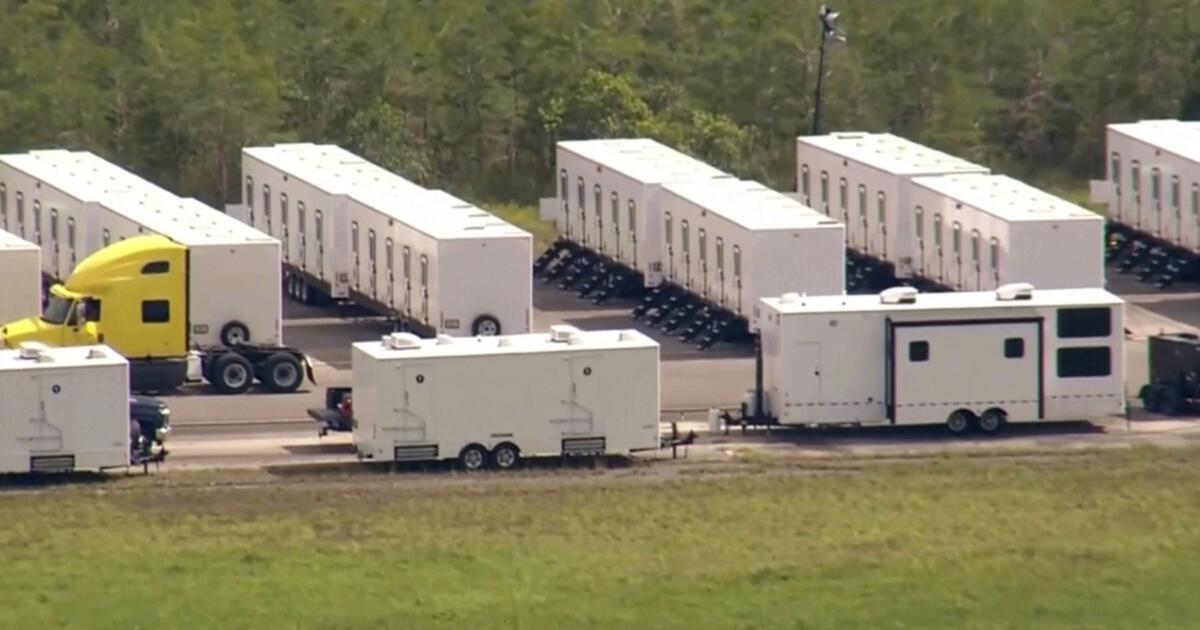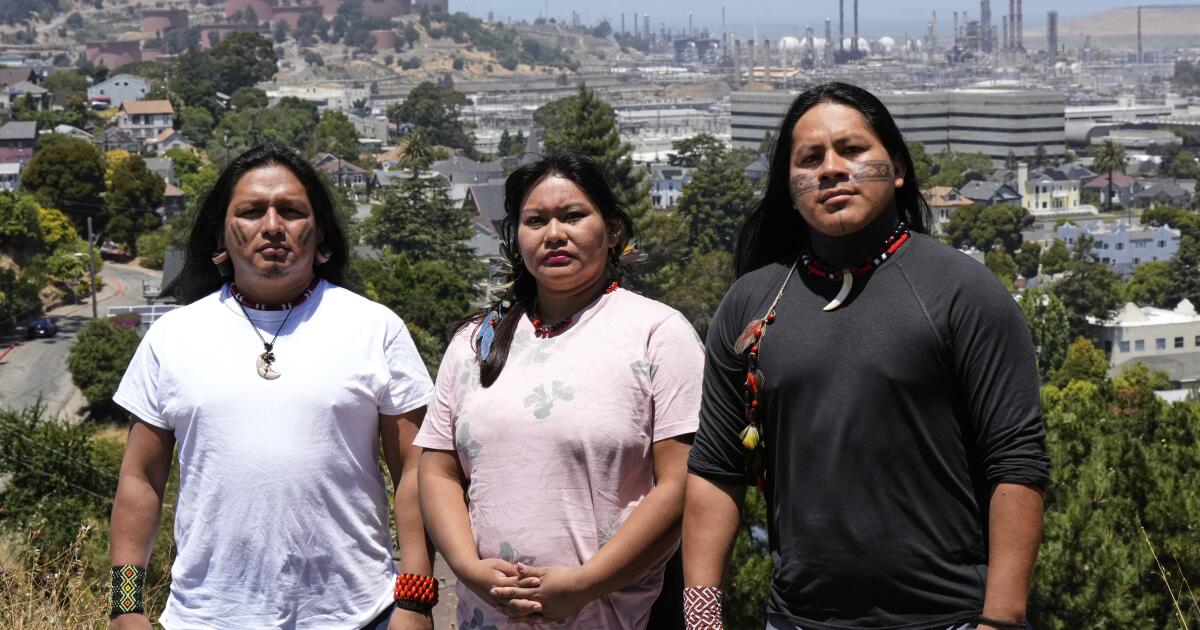Native leaders blast construction of Florida’s ‘Alligator Alcatraz’ on land they call sacred
TALLAHASSEE, Fla. — Florida Republican Gov. Ron DeSantis’ administration is racing ahead with construction of a makeshift immigration detention facility at an airstrip in the Everglades over the opposition of Native American leaders who consider the area their sacred ancestral homelands.
A string of portable generators and dump trucks loaded with fill dirt streamed into the site Thursday, according to activist Jessica Namath, who witnessed the activity. The state is plowing ahead with building a compound of heavy-duty tents, trailers and other temporary buildings at the county-owned airfield in the Big Cypress National Preserve, about 45 miles west of downtown Miami.
A spokesperson for the Florida Division of Emergency Management, which is helping lead the project, did not respond to requests for comment.
State officials have characterized the site as an ideal place to hold migrants, saying there’s “not much” there other than pythons and alligators.
Indigenous leaders who can trace their roots to the area back thousands of years dispute that — and they’re condemning the state’s plans to build what’s been dubbed “Alligator Alcatraz” on their homelands.
For generations, the sweeping wetlands of what is now South Florida have been home to Native peoples who today make up the Miccosukee Tribe of Indians of Florida and the Seminole Tribe of Florida, as well as the Seminole Nation of Oklahoma.
“Rather than Miccosukee homelands being an uninhabited wasteland for alligators and pythons, as some have suggested, the Big Cypress is the Tribe’s traditional homelands. The landscape has protected the Miccosukee and Seminole people for generations,” Miccosukee Chairman Talbert Cypress wrote in a statement on social media.
There are 15 remaining traditional Miccosukee and Seminole villages in Big Cypress, as well as ceremonial and burial grounds and other gathering sites, Cypress testified before Congress in 2024.
“We live here. Our ancestors fought and died here. They are buried here,” he said. “The Big Cypress is part of us, and we are a part of it.”
Critics have condemned the facility and what they call the state’s apparent reliance on alligators as a security measure as a cruel spectacle, while DeSantis and other state officials have defended it as part of Florida’s muscular efforts to carry out President Trump’s immigration crackdown.
Tribal leaders and environmentalists are urging the state to change course, noting that billions of dollars in state and federal funds have been poured into Everglades restoration in recent years, an investment they say is jeopardized by plans to house some 1,000 migrants at the site for an undetermined amount of time.
Indigenous leaders and activists are planning to gather at the site again Saturday to stage a demonstration highlighting why the area is “sacred” and should be “protected, not destroyed.”
“This place became our refuge in time of war. It provides us a place to continue our culture and traditions,” Miccosukee leader Betty Osceola wrote in a social media post announcing the demonstration.
“And we need to protect it for our future generations,” she added.
Payne writes for the Associated Press.

